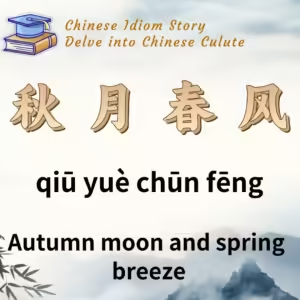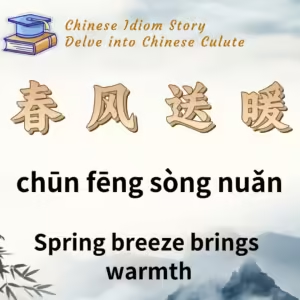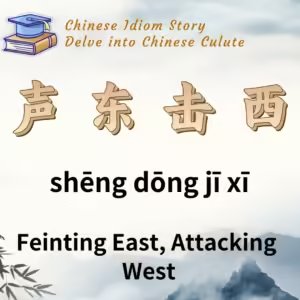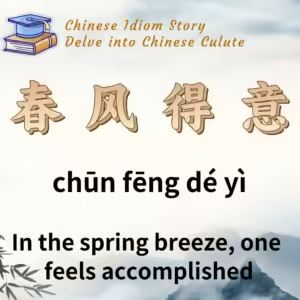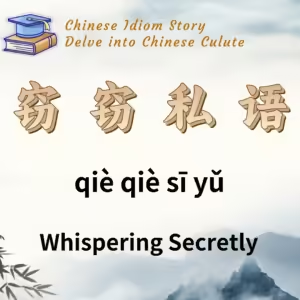
Chinese Idiom: 野火烧不尽,春风吹又生 (Ye Huo Shao Bu Jin, Chun Feng Chui You Sheng)
English Translation: Wildfire cannot burn it out; the spring breeze blows and it grows again
pīn yīn: yě huǒ shāo bù jìn, chūn fēng chuī yòu shēng
Idiom Meaning: This phrase symbolizes the resilience of new life and ideas, suggesting that they cannot be completely extinguished and will eventually thrive again.
Historical Source: From Bai Juyi’s poem “Farewell to the Ancient Grass” (《赋得古原草送别》) during the Tang Dynasty.
Idiom Story:
Bai Juyi, courtesy name Letian, was a renowned poet during the late Tang Dynasty. Born in a family of minor officials in Xinzheng County, Henan, he became a successful scholar at the age of twenty-nine and lived to the age of seventy-five. He began writing poetry at the age of five and was familiar with tonal patterns by the age of nine. By the age of fifteen or sixteen, his poems had already gained popularity among contemporaries. To this day, over 2,806 of his poems have been preserved, making him one of the most prolific poets in Chinese literary history, second only to Lu You of the Song Dynasty. His poetry is characterized by its strong social themes and practicality, written in a style that is accessible and easy to understand, leading to widespread circulation during his time. It is said that Bai Juyi’s works were copied everywhere—schools, temples, inns, and on the streets—enjoyed by people of all ages and backgrounds.
Around the year 788 AD, when Bai Juyi was sixteen, he traveled to the capital, Chang’an, to take part in the imperial examination. Before the exam, he wrote several poems and showed them to Gu Kuang, a well-known poet of the time who was not only skilled in poetry but also exceptionally humorous. When Gu Kuang learned that the young poet was named Bai Juyi, he joked, “With the high cost of living in Chang’an, staying here must be quite challenging!” However, upon reading the lines “野火烧不尽,春风吹又生” in Bai Juyi’s first poem, Gu Kuang was struck by their beauty and exclaimed, “What a great poem! With such talent, it will be easy for you to make a name for yourself in Chang’an!” Thus, Bai Juyi’s fame began to spread.
The poem “Farewell to the Ancient Grass” consists of eight lines:
离离原上草,一岁一枯荣。
野火烧不尽,春风吹又生。
远芳侵古道,晴翠接荒城。
又送王孙去,萋萋满别情。
Interpretation of the Poem: The poem depicts the lush grass covering the vast ancient plains, flourishing and withering each year. The relentless wildfires can never burn it all away, and with the warmth of the spring breeze, it grows vigorously once more. The distant fragrant grass nearly covers the ancient road, and in the sunlight, the verdant landscape connects to remote towns. As friends depart for distant journeys, the vibrant spring grass seems to embody the bittersweet feelings of farewell.
The poem is tightly structured and refreshing in tone. Through its ode to the wild grass of the wasteland, it expresses Bai Juyi’s bold spirit and his aspiration to achieve something significant in his youth.


